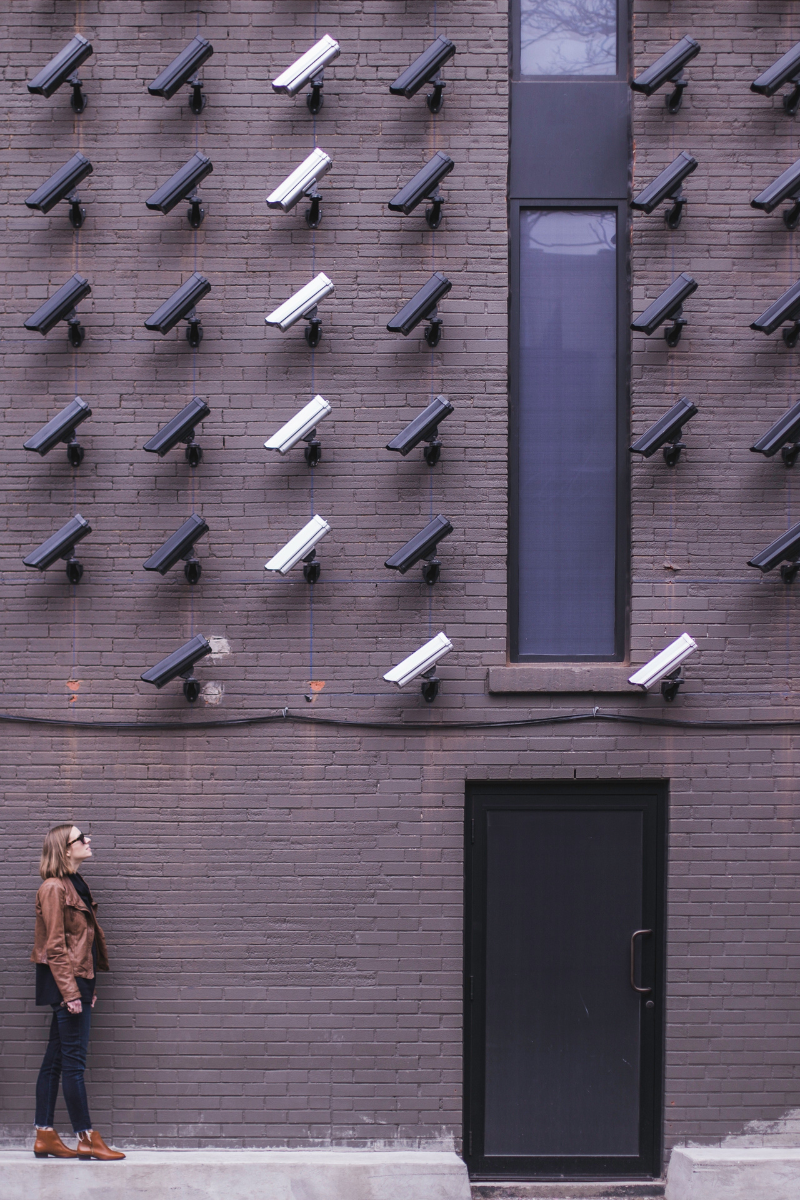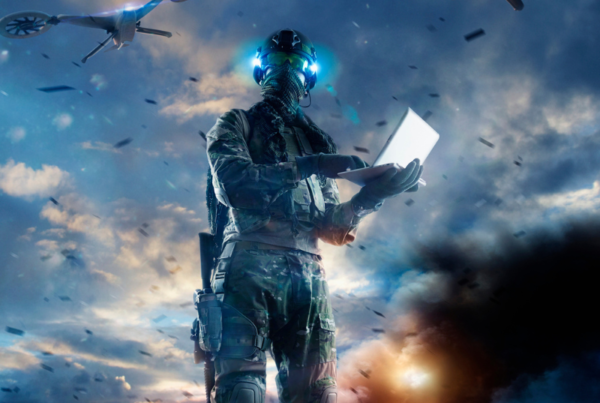George Orwell warned in his doomsday “1984” classic that if one wants to keep a secret in the dystopian future, one will need to hide it from themselves. The same year which bears the book’s namesake, Washington Post columnist turned MIT fellow Michael Schrage cautioned – even before the first dot-com domain was registered – that “Even the humble floppy disc would soon become a source for snooping.”
Thirty-eight years later in an era routinely dubbed as “post-digital,” where digital communications are no longer additives to productivity rather the entire makeup of how the world functions, we have all come to learn and blindly accept that “Big Brother” – both the private and public spheres – can access, track, store, and share almost every single move we make.
Whether we opt-in or opt-out, “Big Tech” and big governments alike collect troves of data from each of us every single day.
Amazon’s Alexa operates in our homes. Apple’s Siri dominates our pockets. Fitbit and other health-tracking wearables log how many steps we take. Google Maps constantly pings your location and UberEATS knows our food preferences and calorie intake. Even the vehicle identification number (VIN) has been morphed into a mechanism for tracking, charging your bank accounts, and remotely accessing and controlling your vehicle in the name of safety, security, and convenience.
As science fiction writer and activist Cory Doctorow points out in his recent Medium article, these Big Brother capabilities have even been deployed by tractor makers like John Deere, the unmistakable and proud symbol of the American heartland.

In early May, reports emerged from the Ukrainian war theater that some of Deere’s equipment stolen by Russian invaders and shipped to Chechnya had been rendered useless when the manufacturer leveraged a “kill switch” technology to disable the machines. Keeping stolen equipment out of the hands of bad guys and ruthless armies sounds great, but as Doctorow emphasizes, the reality below the feel-good surface story is an extremely slippery slope of concerning and perhaps insurmountable implications.
“(It is) a far scarier parable about the way that cyber warfare could extrude itself into the physical world. The (kill switch) was invented to thwart American farmers. Deere bundled the data with the farmer and sold both to Monsanto,” he writes. “It’s important not to get swept up in the industry’s self-serving cheerleading about these kill-switches working in ways we like, because of all the ways they can go wrong.”
He points out that in 2017 John Deere explained in a copyright brief that farmers, despite the tens of thousands of dollars spent each year on farm equipment, would never fully own their tractors outright because, “the software that animates these tractors belongs to John Deere for the full term of the copyright — 90 years — and the farmers merely license that code.”
Each time one agrees to the terms of service, they agree to such a contract and essentially consent to their data being pawned to the likes of biotech giants like Monsanto, a major producer of genetically engineered crops.
We also see similar schemes and alarmingly blind trust on behalf of consumers in the prescription medicine markets. Prescription drug monitoring programs (PDMPs) are state-sponsored electronic databases that record controlled substances prescribed by medical providers. Its benefits are sold to the public as a means to help professionals determine drug abuse patterns. However, that private data usually ends up in the government’s hands or with third parties whose motives are unknown.
Three years ago, the U.S. Food and Drug Administration (FDA) announced a new initiative to construct a comprehensive index on prescription drugs and which patients in which areas were using certain drugs. The intent is to apply machine learning and artificial intelligence (AI) to determine and predict vulnerable communities and patient populations.
So, your home, your car, your phone, and your healthcare are all under the control of everyone but you. How much worse can it get?
Well, agencies have aggregated billions of records from public and private sources in mass-scale data mining operations of financial transactions from corporate directories, car rental and hotel transactions, taxi, and ride-sharing destinations, and even law enforcement networks. In addition, platforms like Gmail and Yahoo scan personal emails to curate tailored data profiles which they then sell or provide access to marketers (you can opt-out of targeted advertising in your settings to at least limit the data assemblage) – both make a profit and you receive nothing.
There are upwards of four thousand data brokers in the United States alone whose sole task is to harvest, hold, and sell your personal information to the highest bidder. Even government agencies are said to have hired private firms to aid in surveilling social media. Those firms store everything from your birth date to Social Security Number and home address histories to driver’s license numbers and records.
Furthermore, roads, bridges, elevators, and streets are all stuffed with cameras, facial recognition technology, and automatic license plate readers. This of course happens all while hardly a day goes by when we don’t hear of a significant breach at a popular company or essential government agency. What’s worse, this is now normalized. It is expected. Few feathers are ruffled when we are routinely and somewhat indignantly notified that our information and data is now out there in the hands of cybercriminals.
It is enticing to peg all the “New Age” spying on the emergence of everything from Facebook to Snapchat and TikTok, but truth be told, the private-public coordination dates to the mid-1990s when the intelligence community recognized the supercomputing opportunities and started slipping funds across Northern California for a foot-in-the-door of mass scale information gathering. This, of course, was based on the now proven assumption that we’d give away our data, or at least the access to it, to the monopoly providences of social media and the like, even if that meant an apparent violation of the First or Fourteenth Amendments.
Information gleaned can be shared across agencies, all levels of government, and even allied foreign governments, with little control or oversight as to how it is disseminated once it leaves the deriving agency’s grasp, susceptible to misinterpretation, overreach, and abuse.
Consult experts on the matter and the professional tendency is to chalk it all up to a creepy coincidence followed by verbose assurances that it stems from a profile already agreed upon by users and that it would be illegal for any institution to listen, collect, store, distribute, or sell, without a warrant or consent.
And don’t safely assume that those end-to-end encrypted messenger systems are all cozy in their confidentiality.
“WhatsApp is easy for us to get into,” a western security contractor friend in Mexico City tells me breezily over cigars and tequilas in the bustling capital.
Regardless of tweaked privacy policies, legislation, or citizen blowback, snooping and hacking are here to stay. So what is a regular American supposed to do amid this seemingly insurmountable and irreversible onslaught of technological abuse and data misuse?
A shameless plug but worth some consideration is the new Liberty Ghost Phone. It’s an Android run on a one-of-kind operating system with a secure, encrypted App Suite on a VPN. It’s government-grade security for the privacy-conscious citizen with zero data mining and nothing (but minor parts) made in China. The Liberty Blockchain team even made it so you can access your digital wallets and manage your crypto using our blockchain technology.
The Liberty Ghost Phone is probably the best thing you can do for your data privacy and security – we weren’t going to write a cute article listing obvious and juvenile tips like reviewing your settings or conducting a “privacy checkup” – we want you to have the best options to counteract the disgusting largess of Big Tech and big government.
There is a lot out of our hands regarding digital privacy and upholding our Constitutional Rights, but there is also a lot – quite literally – in our hands that we can do for protection.






